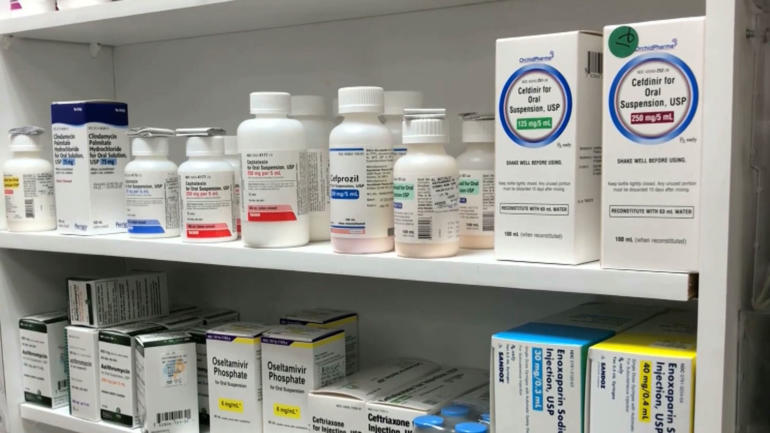This drugstore in San Juan did all it could to serve patients during Hurricane Maria and throughout its long and painful aftermath. The night before the storm, it stayed open as long as possible, updating customers through its Facebook page.
CGTN’s Nitza Soledad Perez has the whole story.
Two days after the storm made landfall – despite challenges – the pharmacy opened its doors again. Lydia Narvaez, a pharmacist and also co-owner, recalls those days,
“We had a big enough generator and with that we were able to operate at least part of the time. We had no computer systems, there was no way.”
Without communications, pharmacists could still dispense medicines, using stored patient files. A patient’s ability to pay – was not of immediate concern.
“Being a pharmacist has been my profession for the past forty years and I understand when people are in need, and if they paid or if they didn’t, the way things were, I had to have faith and believe that they would come back and pay,” adds Narvaez.
Well, some did…others did not, she told us. Amid the mayhem, medicines were available for most islanders. For those further inland, the trick was in physically getting to the drugstore. But the Category Four storm disrupted the larger pharmaceutical industry that heavily relies on Puerto Rico as a manufacturing base.”
Wendy Perry handles operations for Merck Puerto Rico and also serves on the board of Puerto Rico’s Pharmaceutical Industry Association. “We prepared plans not assuming that we had a 100 percent no communications, no generation at all of electricity. Indeed we were able to respond and mitigate the risk but we had significant learnings. Basically in Puerto Rico the only shortage of product that we had at that moment was IV bags from Baxter.”
These IV bags are critical — to both hydrate and deliver medications directly into the blood stream. They were already in short supply before the storm. But when Hurricane Maria crippled the island plants run by Baxter International – a top producer – all of the United States felt the crunch, with some communities still struggling to maintain inventory.
The industry admits that logistics became a nightmare. “The first challenge, let’s start with the people, and I mean the actual driver, of the transportation and logistics partner, people getting back to their operations was a challenge. The second challenge was the lack of coordination from the ports point of view.”
U.S. exports of pharmaceuticals from Puerto Rico were down 20 percent overall last year – a direct result of Maria’s impact. But Puerto Rico still managed to maintain its top position — exporting more drugs and medical supplies than any U.S. state.
And to stay in the lead, the industry here is adjusting future response plans. Merck’s includes drones.
“During an emergency phase, let’s have also drones to do an inspection of the roads, for us transportation is key. First, because we have to be able to get our employees as fast as we can to the plant facilities, because we have to operate with the employees and secondly because we need our suppliers to get to the plant,” explains Perry.
Merck is also exploring the use of drones to deliver medicines to critically ill patients living in the island’s rural zones.
 CGTN America
CGTN America

